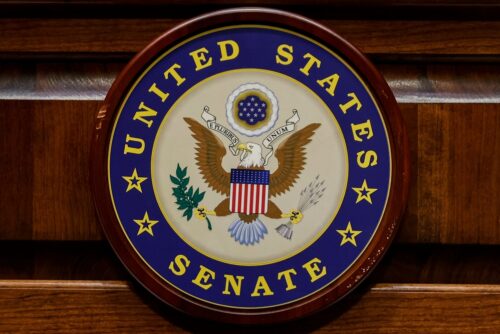Temporary Protected Status (TPS) is a temporary immigration status granted to nationals of specifically designated countries that are facing an ongoing armed conflict, environmental disaster, or extraordinary and temporary conditions. Congress established TPS in the Immigration Act of 1990 with the express purpose of preventing nationals from being sent back to countries where life had become dangerous or untenable due to specific conditions.
As of August 2017, an estimated 325,000 TPS beneficiaries live in the United States. More than 90 percent of individuals with TPS are nationals of El Salvador (195,000), Honduras (57,000), or Haiti (50,000). The remaining beneficiaries come from Nepal, Nicaragua, Somalia, Sudan, South Sudan, Syria, and Yemen. This fact sheet provides information about TPS holders from El Salvador, Honduras, and Haiti.
TPS Beneficiaries from El Salvador, Honduras, and Haiti Have Integrated into U.S. Society
Many TPS holders from El Salvador, Honduras, and Haiti came to the United States at a young age and have spent a significant portion of their life here. Salvadoran and Honduran TPS holders have, on average, spent at least a third of their lives on TPS. And, approximately 30 percent of Haitian TPS beneficiaries were 15 years old or younger when they arrived in the United States. This long-term settlement has allowed them to become active and contributing members of their communities and the nation as a whole.
- The majority of Salvadorans and Hondurans with TPS have lived in the United States for at least 20 years (51 and 63 percent, respectively), while 16 percent of Haitian TPS holders have resided in the country for at least two decades. During this time, they have been regularly vetted by the government, submitting themselves to background checks every time their TPS has been renewed. Hondurans, for example, have passed security checks 13 times while having TPS.
- Many TPS beneficiaries from El Salvador, Honduras, and Haiti have families in the United States. These families include approximately 273,000 native-born U.S.-citizen children. Almost two-thirds (61 percent) of Salvadoran and Honduran TPS holders with children reported in a 2016 survey that they had at least one U.S.-born child.
- Salvadoran, Honduran, and Haitian TPS beneficiaries live in nearly 206,000 households, about 30 percent of which have mortgages. Almost a third (32 percent) of Salvadoran and Honduran TPS holders surveyed in 2016 owned their own home.
- TPS holders from El Salvador, Honduras, and Haiti live throughout the United States. Together, six states—California, Florida, Texas, New York, Virginia, and Maryland—are home to about 70 percent of these TPS recipients.
- The vast majority (87 percent) of TPS holders from El Salvador, Honduras, and Haiti speak at least some English, and slightly over one-half speak English well, very well, or only English.
TPS Beneficiaries from El Salvador, Honduras, and Haiti are Active Members of the Labor Force.
As a result of the work authorization made available to individuals with TPS, beneficiaries participate in the U.S. workforce at very high rates.
- More than 80 percent of TPS holders from El Salvador, Honduras, and Haiti participate in the labor force—with Salvadorans having the highest rate of workforce participation (88 percent), followed by Hondurans (85 percent), and Haitians (81 percent).
- The greatest shares of Salvadorans and Hondurans with TPS in the labor force work in the construction industry (over 50,000 workers), while more Haitians with TPS work in the restaurant and food services than in any other sector. Together, TPS holders are concentrated in these two sectors, as well as landscaping, childcare, grocery industries, and hospitality.
- About one in nine TPS beneficiaries in the labor force are self-employed (27,000 in total), meaning they created jobs for themselves and likely for others.
- Salvadoran and Honduran TPS holders interviewed in 2016 reported working long hours, with 48 percent logging between 40 and 45 hours per week—higher than the average work week for the U.S population overall.
TPS Beneficiaries Make Important Contributions to America’s Economy.
As long-standing members of communities across the United States and a vital share of the labor force, TPS holders from El Salvador, Honduras, and Haiti have added value to the U.S. economy through income and property taxes, Social Security and Medicare contributions, job creation, and spending.
- The contributions to the country’s GDP from Salvadoran, Honduran, and Haitian TPS recipients over the next decade total an estimated $164 billion. In the six states in which they are concentrated (California, Florida, Texas, New York, Virginia, and Maryland), these TPS beneficiaries add between $1.2 and $2.7 billion dollars annually to each state’s GDP. Nationally and locally, most of these dollars would be lost if the TPS designations for El Salvador, Honduras, and Haiti are terminated.
- Median household income for TPS beneficiaries from the three countries ranged from $40,000 to $50,000 (compared to the national median of $56,000), while the vast majority of households with Salvadoran, Honduran, or Haitian beneficiaries had incomes above the poverty level.
- Salvadoran and Honduran TPS holders have contributed to Social Security for an average of 15.4 years.
- Approximately 90 percent of Salvadoran and Honduran TPS holders reported in a 2016 survey that they filed income taxes every year in the three years prior.
What Impact Would Ending TPS Designations for El Salvador, Honduras, or Haiti have?
In general, if the government does not extend or re-designate a country for TPS, beneficiaries return to the individual immigration status held prior to receiving TPS—including the prospect for many of returning to undocumented status and becoming subject to deportation.
Despite the fact that TPS holders have undergone multiple government background checks and fulfill many of the requirements for lawful permanent residence—the overwhelming majority are employed; they pay taxes; and have demonstrated a commitment to U.S. society through homeownership and raising children in the United States—there is no specific avenue for permanent status available to them.
Given the long-standing and extensive ties that current Salvadoran, Honduran, and Haitian TPS holders have in the United States, ending the TPS designation for these countries without a plan in place to maintain their connections and contributions would have devastating consequences. Not only would the more than 300,000 individuals suffer, but countless families, industries, and communities overall would be at risk of losing valued members of our society.




